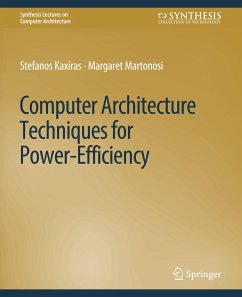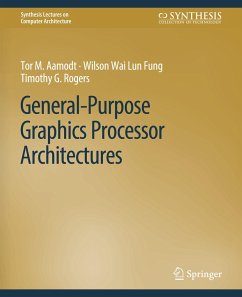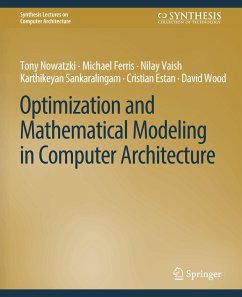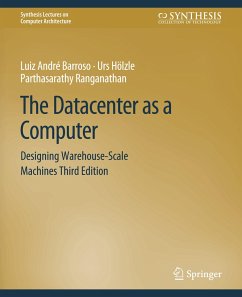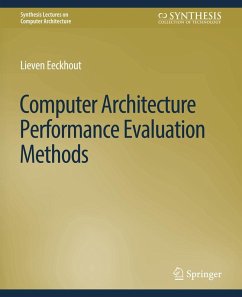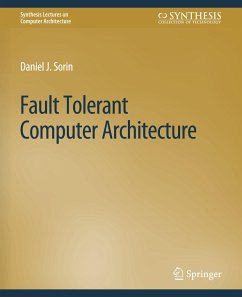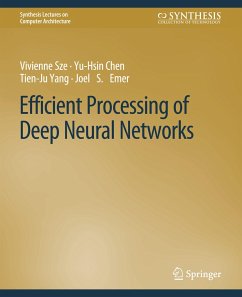
Power-Efficient Computer Architectures
Recent Advances

PAYBACK Punkte
0 °P sammeln!
As Moore's Law and Dennard scaling trends have slowed, the challenges of building high-performance computer architectures while maintaining acceptable power efficiency levels have heightened. Over the past ten years, architecture techniques for power efficiency have shifted from primarily focusing on module-level efficiencies, toward more holistic design styles based on parallelism and heterogeneity. This work highlights and synthesizes recent techniques and trends in power-efficient computer architecture. Table of Contents: Introduction / Voltage and Frequency Management / Heterogeneity and S...
As Moore's Law and Dennard scaling trends have slowed, the challenges of building high-performance computer architectures while maintaining acceptable power efficiency levels have heightened. Over the past ten years, architecture techniques for power efficiency have shifted from primarily focusing on module-level efficiencies, toward more holistic design styles based on parallelism and heterogeneity. This work highlights and synthesizes recent techniques and trends in power-efficient computer architecture. Table of Contents: Introduction / Voltage and Frequency Management / Heterogeneity and Specialization / Communication and Memory Systems / Conclusions / Bibliography / Authors' Biographies



